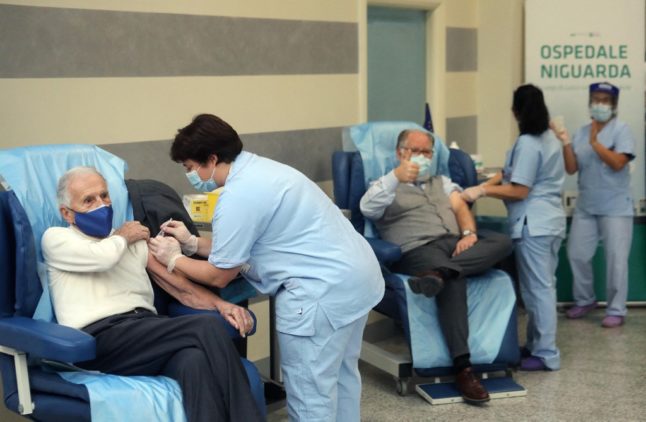The north-eastern region around Venice has seen infections rise in the past week in an outbreak traced back to a resident who returned from an overseas trip and refused to go to hospital despite showing symptoms.
READ ALSO: Here are the current rules on travelling to Italy
In a new ordinance issued on Monday, regional governor Luca Zaia set a fine of €1,000 for anyone who breaks quarantine rules – even if they have tested negative for the new coronavirus.
If someone is caught leaving isolation to go to work, their employer is liable to pay €1,000 for every employee exposed.
Meanwhile health authorities are obliged to report anyone who tests positive but refuses to isolate to the police for possible criminal charges.
A 14-day quarantine is obligatory for anyone who enters Veneto from outside the EU, Schengen Zone or UK. People who come into contact with someone who tests positive for the coronavirus, or who show symptoms of being sick with Covid-19, must also self-isolate for at least two weeks.
On top of quarantining, people who travel for work must test negative twice before being allowed to return to their workplace as normal.
READ ALSO:
- Italy keeps travel ban in place as EU opens borders
- 40 percent of coronavirus carriers in Italian town show no symptoms, study finds
- 'Treated like criminals': Italy turns away American tourists on private jet
While the new rules are only applicable in Veneto, Italian Health Minister Roberto Speranza has said that he is considering allowing hospitals to section people who refuse to be admitted for Covid-19.
Currently people who test positive can be fined up to €5,000 and jailed for up to six months for failing to quarantine, but there is no way to force them to go to hospital if they refuse.
Veneto's new ordinance comes as the region's effective reproduction number (Rt) rose from 0.43 to 1.63 by Friday. If a disease is to be wiped out, epidemiologists say the Rt needs to be below 1.
The region has traced at least five cases of the virus back to three businessmen who travelled to Serbia and Bosnia in June before returning to the cities of Vicenza and Verona. One of the people they came into contact with has since died from Covid-19.
One of the men from Vicenza did not self-isolate when he got back and was slow to inform health authorities when he first developed symptoms or about who he had been in contact with since returning. He also initially resisted going to hospital, where he is currently being treated in serious condition.
The regions of Lazio and Emilia-Romagna have also seen their Rt number rise above 1 in the past week after outbreaks in Rome and Bologna.



 Please whitelist us to continue reading.
Please whitelist us to continue reading.
Member comments